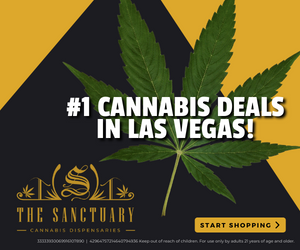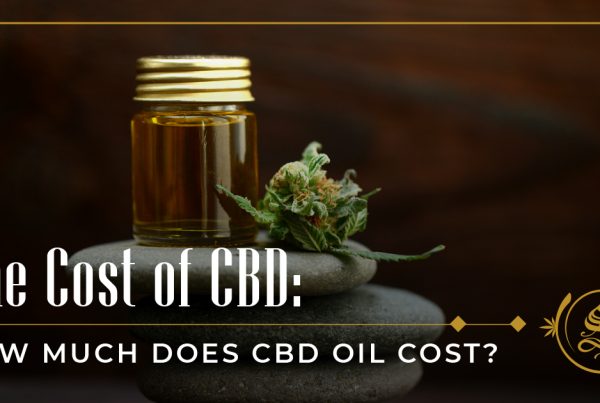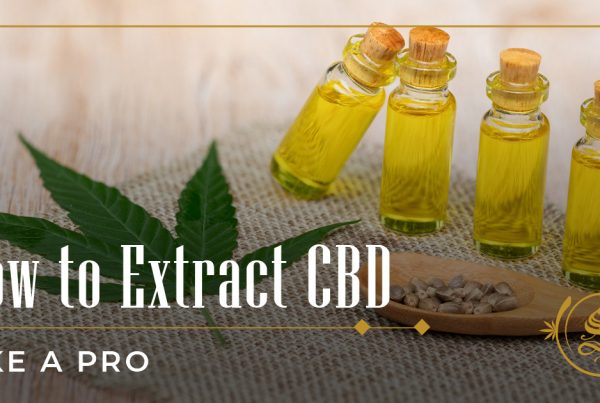Cannabidiol, also known as CBD, has increased in popularity, use, and study over the last few years. These days you can find CBD products over the counter in pharmacies, grocery stores, athletic suppliers, cannabis dispensaries, and even in coffee shops and pet stores.
Despite this increase, there is still public confusion about what CBD is and what benefits can be derived.
In states that have legalized cannabis, there are reports of some people taking themselves to the emergency room after ingesting an edible with too high of a dose of THC. This has caused some people to ask:
“Can you overdose on CBD? What happens if I take too much? How much should I take?”
CBD is considered safe and therapeutic in most circumstances. The therapeutic benefits of cannabidiol include anti-anxiety, anti-inflammatory, and neuroprotective effects (meaning it can prevent the death of neuronal cells in the brain). These benefits can positively affect a wide range of conditions and the associated symptoms.
It is important to understand the ways that CBD can affect you, including the possible adverse effects of using this cannabinoid.
Can you get sick from CBD?
Cannabidiol is a naturally occurring cannabinoid in the cannabis plant. To create a pure CBD product, cannabidiol is extracted from the plant and filtered away from other cannabinoids. These other cannabinoids, such as THC, can have therapeutic effects, but can also carry well-known psychoactive effects as well.
Consuming pure CBD is unlikely to give you a sick or unpleasant feeling. The World Health Organization report from 2017 stated that “in humans, CBD exhibits no effects indicative of any abuse or dependence potential” and is “generally well-tolerated with a good safety profile.”
It is best to keep in mind, however, that every substance carries the risk of side effects. Some cannabis-related studies determined that fatigue, decreased appetite, upset stomach, involuntary muscle contractions, and abnormal liver function are all potential side effects of using CBD.
In particular, cannabinoid hyperemesis syndrome was found to be a factor for patients who experience nausea and vomiting while taking CBD at high doses. Cannabinoid hyperemesis syndrome is a condition and is separate from using CBD products alone. Still, there are some adverse side effects that should be considered depending on an individual’s existing medications.
A 2018 publication from the Harvard Health Blog regarded the side effects caused by contaminants in the CBD. These impurities are made possible due to the unregulated status of cannabis products. After passing the Farm Bill in 2018, the jurisdiction of hemp-derived CBD products was given to the United States Food and Drug Administration, and CBD products were officially legalized.
Can CBD oil lower your blood pressure?
CBD can help lower blood pressure, as shown in this study conducted in 2017 by the American Society for Clinical Investigation. In the study, researchers administered a 600mg dose of CBD and gave the control group a placebo. A series of clinical tests were performed which analyzed blood pressure and similar bodily functions. The conclusion found that patients who received the CBD had reduced blood pressure levels when compared to those who were given the placebo.
Lowered blood pressure does not pose a risk for the majority of people. But for some, reduced blood pressure could produce such effects as dizziness, fainting, weakness, and can pose a risk for injury due to falling.
Is CBD oil potentially lethal?
The 2017 clinical review that was published in Cannabis and Cannabinoid Research confirmed that CBD is generally safe, especially when compared to other pharmaceutical drugs. The largest inherent risk of using high-dose CBD products is sleepiness and fatigue, as the cannabinoid is known for its tranquilizing effects.
However, one CBD-linked fatality was reported in 2019. The report states that a 56-year-old woman presented with Stevens-Johnson syndrome, which is a rare and severe disorder of skin as well as mucous membranes (epithelial cells in the eyes, nose, sinuses, mouth, and other bodily structures). The patient is reported to have begun taking a CBD extract spray about a week before being admitted to emergency hospital services. Later, she died of septic shock.
Digging deeper, we see that the woman reported a 5-year period of habitual use of CBD products with no adverse reactions. It is far from clear if the new spray contributed to her development of Stevens-Johnson syndrome, as the report suggests. It is clear, however, that the patient’s complex medical history (which included hypertension and coronary heart disease) contributed heavily to her death.
Although CBD is not commonly lethal, exceptions do exist and it is best to consult your physician before introducing CBD into your medical regimen.
Can you build a tolerance to CBD?
Building tolerance means that an individual has introduced a substance to their body regularly and that as the body becomes accustomed to the substance it may require a higher dose to produce the desired effect. Much like needing a second cup of coffee or tea for the caffeine.
Let us stick to the caffeine example. Having a high tolerance could lead to consuming more caffeine, but if you consume too much you could have unwanted side effects such as caffeine-related insomnia, agitation, and jitters.
This is not necessarily true in the case of CBD. Taking a daily dose helps to sustain your body’s level of CBD, stimulating your endocannabinoid system. This will actually help your body process the cannabinoid more effectively. Some individuals report that they needed to take CBD for weeks or sometimes months before they experienced a significant difference.
How much is too much CBD?

“Can you overdose on CBD oil?” is a question commonly asked, and not usually in terms of a fatal overdose. The term “overdose” commonly describes a person’s uncomfortable side effects to any substance taken at too high of a dose.
CBD products will not produce the psychoactive high of other cannabinoids, nor can someone experience a fatal overdose. Always be sure to check with your doctor before introducing any substance into your system.
Most people tolerate CBD very well, and it is generally considered a safe supplement. Most folks experience undesired side effects due to overconsuming a THC-dominant product.
The most common potential side effects of high doses of CBD are dry mouth and lethargy. The risk of overconsuming CBD is low, but the potential adverse reactions include:
- Dry mouth
- A temporary drop in blood pressure
- Drowsiness
- Sedation
- Changes in appetite
- Diarrhea
Judging how much CBD is too much will depend on various factors like body weight and body chemistry. It is recommended to follow the serving size indicated on your CBD product. Start at a low dose and increase gradually until you feel the desired effects. Keep in mind this may take time.
Can Pets Overdose on CBD Oil?
Many pet owners use CBD to ease pet anxiety, seizures, and pain. Accidentally overdosing your pet with CBD is a common concern. CNBC reports a huge increase in CBD pet product sales, topping at $32 million in 2018. The cannabis research firm Brightfield Group estimates sales of CBD products in the United States pet market could reach $1.6 billion by 2022.
CBD pet products are hugely popular in the industry. These products include CBD oil, pet treats, liquid tinctures, and topical ointments. Like all CBD, these are available over the counter without a prescription.
Pets benefit from cannabinoids due to having an identical endocannabinoid system as humans. CBD can ease symptoms of several neurological and pain disorders in pets, as well as improve overall well-being.
“Can my pet overdose by taking too much CBD oil?”
Our furry friends cannot lethally overdose on CBD, just like us. However, they can experience the same potential side effects after too high a dose of CBD.
This report from the Animal Poison Control Center outlines an increased number of calls regarding overdose symptoms of CBD, which seems to present more strongly in dogs.
The adverse reactions to CBD in pets include:
- Changes in appetite
- Increased sensitivity to stimulation
- Impaired coordination
- Diarrhea
- Lethargy
- Urinary incontinence
Most pet treats which contain CBD will also come with a recommended serving size for appropriate doses, as well as instructions. These products contain a much lower dose of CBD than the products available for human consumption, usually 2.5mg-5mg per piece.
For safety reasons it is important to verify the source of the CBD products you are using to treat your pets. Pro-Tip; a reputable vendor, or those who claim organic ingredients on their package, would use a third-party laboratory to test the CBD content and purity.
CBD as a treatment for drug addiction
In the United States, drug overdoses serve as a serious public health concern. In 2018, 67,000 people died from drug overdose, a shocking 84% increase since the previous decade. These deaths are the result of illicit and prescription drug abuse or addiction.
“Can you use CBD to deal with addiction and its symptoms?”
Addiction impairs someone’s ability to process information, and going “cold turkey” can be insurmountable without cognitive behavioral therapy and a supportive network of friends and family. Sometimes, mental health intervention is necessary. Withdrawal symptoms that arise when someone is working through addiction are an incredibly difficult obstacle on the journey to sobriety.
These studies show a positive correlation between CBD therapy and a reduction in the rewarding sensations that the brain experiences during drug abuse. CBD therapy does not in any way cure addiction, but it can ease the symptoms of withdrawal from substances such as cocaine, amphetamine and nicotine, and support you in your recovery process.






